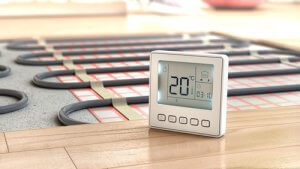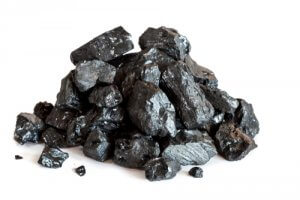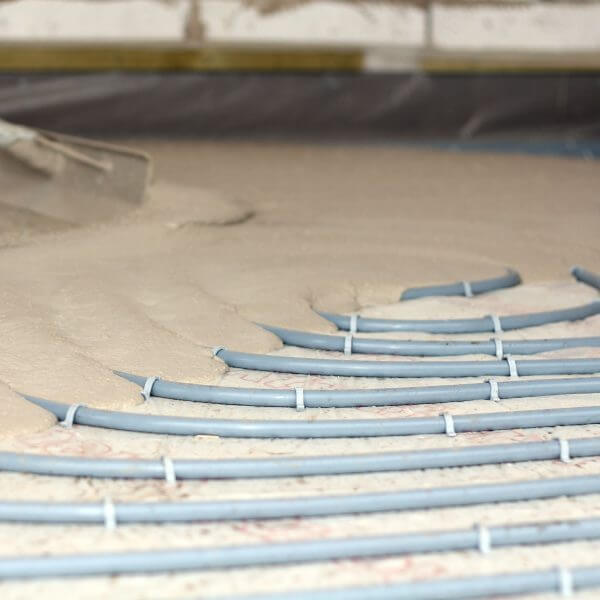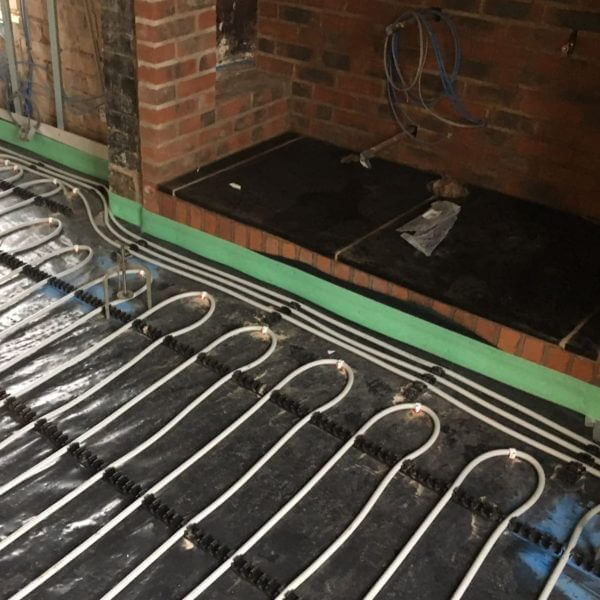The Future of Heating
Future of Heating Systems – Discussed by Easyflow Ltd.

With eco-friendly products and lifestyles becoming more and more important in modern life. This push for environmental solutions to the way that we live has led to developments and innovations in a wide range of technologies and products that are used in everyday life. One area that is a hot topic of discussion currently is how individuals can make their homes more energy efficient.
Heating systems are the key way of heating homes as well as heating water for use in your property. As this is a vital part of the home, efforts and research are being put into making heating systems and the various other systems that we use in our properties more energy efficient and environmentally responsible. In this article, we take a look at the future of heating systems as well as why it is important to consider more environmentally friendly alternatives to heating our homes. If you require further information on UFH systems or have questions about the thermal efficiency of underfloor heating systems compared to other systems then enquire with Easyflow today using an online contact form on our website or telephone now on: 01743 298001
Pledges for the Phasing out of Fossil Fuel Heating

Although announced last year, the government has recently re-highlighted their pledge to phase out of fossil fuel heating in new build properties by 2020 with a gas ban being proposed by 2025. This is part of a push to implement a new wide-ranging clean growth strategy which attempts to move away from fossil fuel energy sources and to encourage carbon storage and the capture of carbon. The emerging question is how can we move away from fossil fuel emissions and towards more environmentally friendly options and this is reflected by the fact that we will more than likely need to find ways to reduce carbon dioxide emissions as well as find more energy efficient heating methods. This is where other heating systems come into the forefront as there are more energy efficient heating systems that are available than the more traditional systems that are commonplace.
Is a Central Heating System With Radiators Less Energy Efficient Than Other Systems?
Arguably the most common type of central heating system in homes around the UK is the central heating system that utilises radiators to heat rooms around your home. Although this is one of the most common forms of heating, this is not to say that it is the most energy-efficient option. There are a range of issues with radiator based central heating systems which lead to these systems being less energy efficient than their less traditional counterparts. As heat rises, this means that you may find that there are cold spots in the room which is being heated. This results in less energy efficiency as the radiators will take longer to heat the room. If your radiators are situated next to windows then you may also experience heat loss through the windows as heat can quickly escape to the outside. The thermal efficiency of your windows are also a factor here.
Underfloor heating has become highly popular in recent years, especially as an alternative to radiator based central heating systems. This may be because of the fact that radiators can be removed from rooms which frees up space for additional furniture or for open plan designs. Due to the fact that these underfloor heating systems heat the floor and then the room around flooring, this ensures that there is more even heating in a room. This leads to a more energy efficient system which is more environmentally friendly.
What Changes Should We Expect in the Future?

There have already been calls for change in the way that we heat our homes and underfloor heating systems are perfect measures to put in place to increase the efficiency of your home. There are other aspects that homeowners have been implementing to improve the thermal efficiency of their homes which you can also adopt alongside an underfloor heating system. This includes installing loft insulation, utilising smart meters and using thermostats. Wet underfloor heating systems run on lower temperatures than radiator central heating systems so this also decreases the environmental impact in comparison to more traditional methods of heating. You can also install underfloor heating systems that are controlled by thermostats and other regulation devices to further increase the efficiency of your underfloor heating system.
The main point of consideration is changing the way that heating systems are perceived. For example, underfloor heating systems have become more and more important but myths still exist around the system (such as that they are reserved only for the most luxurious homes.) Education on the benefits of different heating systems as well as the insulation and other types of energy efficient heating that is available in the home is highly important in changing the way that heating systems are used and increasing their energy efficiency.
The Sustainability of Underfloor Heating Systems
Sustainability is a term that is often used when considering environmental responsibility and although it is thrown around a lot, it is arguably highly important in increasing the energy efficiency of homes across the UK. Underfloor heating is a more natural form of heating and heat pumps are a highly effective way of heating your home. The heat generators that can be attached to underfloor heating systems can vary massively in the way in which they generate heat so there is also the capacity to attach renewable energy generators to underfloor heating systems. These systems will likely be vital in promoting sustainable heating methods in the future and to help promote the moving away from fossil fuel based energy systems to more renewable methods. As underfloor heating systems are already one of the more energy efficient systems available, this in part has led to a huge increase in the popularity of this particular heating system.
Different Flooring Types in Conjunction With an Underfloor Heating System

In order to further improve thermal efficiency, liquid floor screed is highly recommended as the flooring material to use with your underfloor heating system. Various different options are available to give extra strength for shallower applications or guaranteed improved thermal performance. You can also use a wide range of different floor finishes with your liquid floor screed to match the aesthetic or desired aesthetic for your property. If you are looking to install your underfloor heating system quickly then we can offer a range of fast-drying cement-based liquid floor screeds which offer drying times from 10 to 21 days depending on your floor finish. You are also able to walk on liquid floor screed in 24-48 hours which ensures that there are limited delays in being able to access the room where other work may be going on.
Underfloor heating systems are leading the way in the future of heating. Offering heating at lower temperatures and equal heating around your floor and room, these systems are more thermal and energy efficient than traditional central heating systems. Should you be considering installing an underfloor heating system or are looking for a more thermally efficient heating system then contact Easyflow today using an online contact form on our website. Alternatively, contact a member of our underfloor heating team on: 01743 298001




Where To Find Us